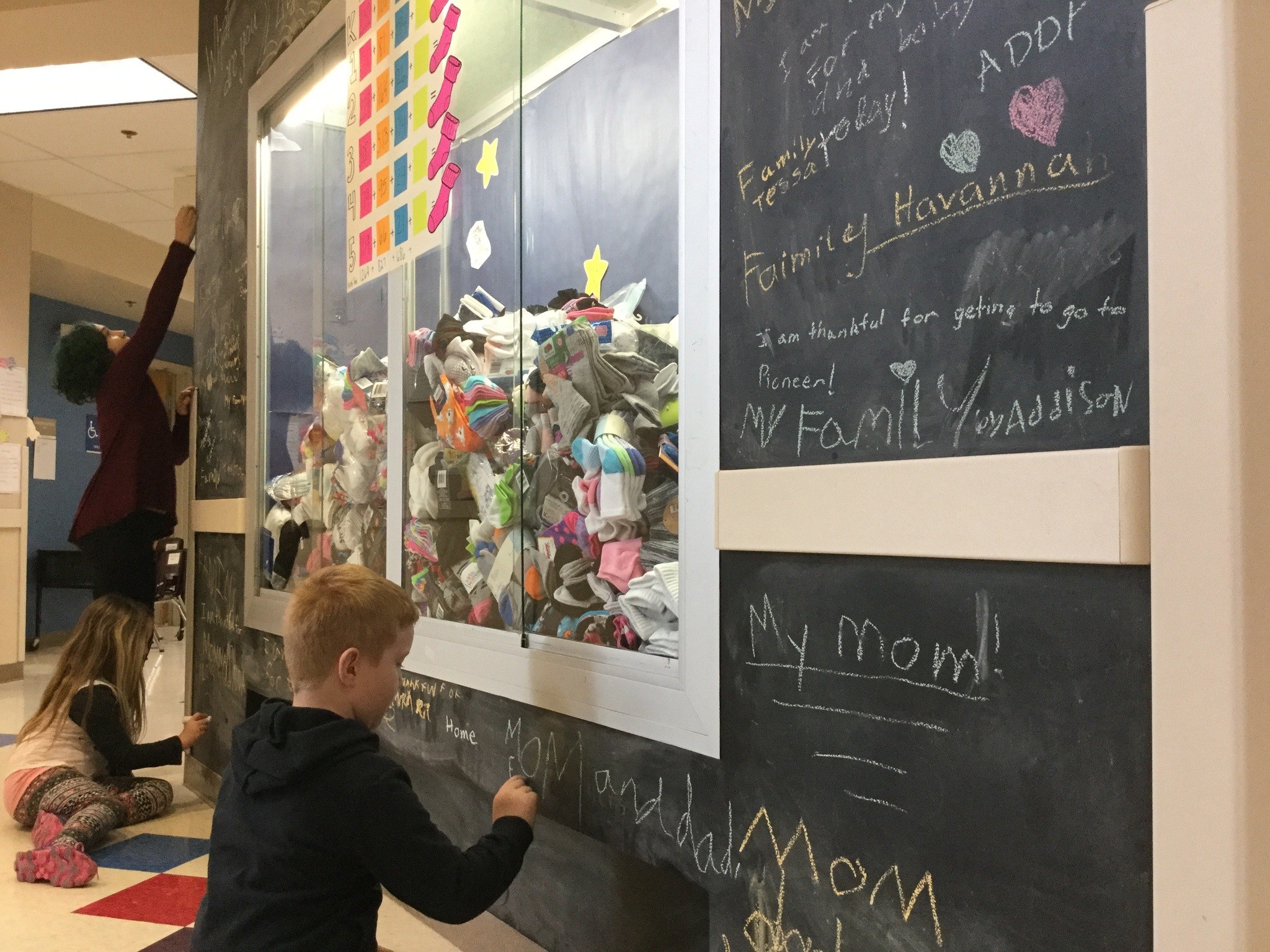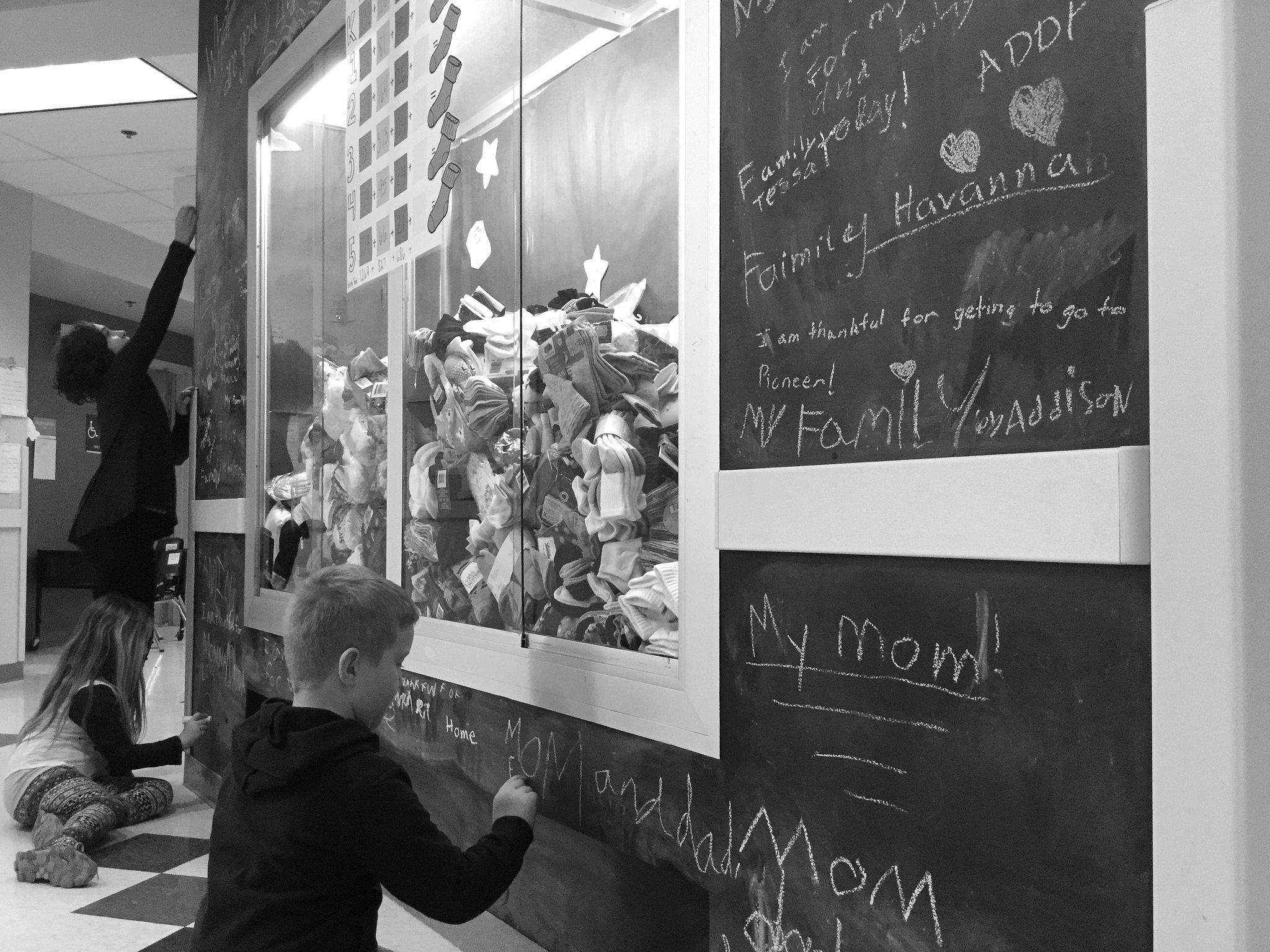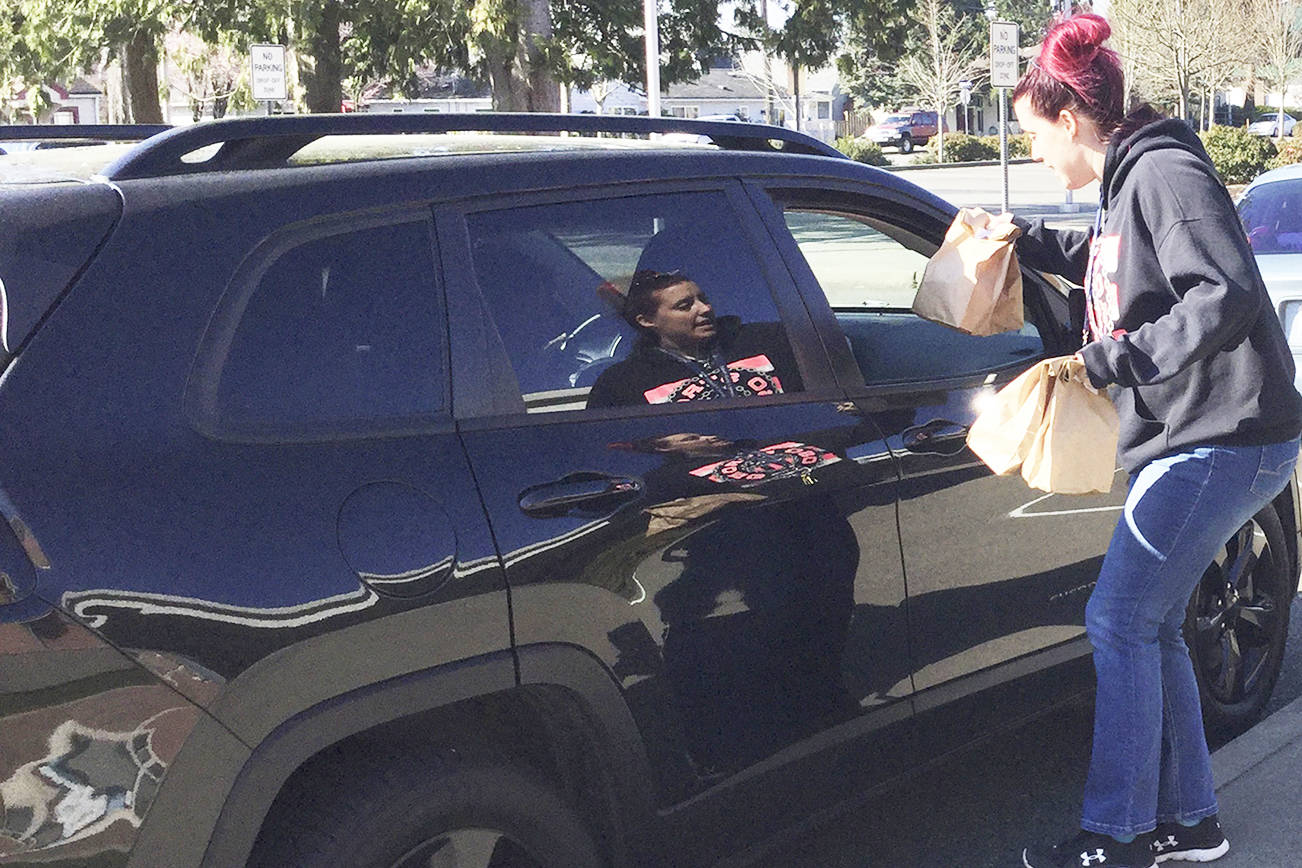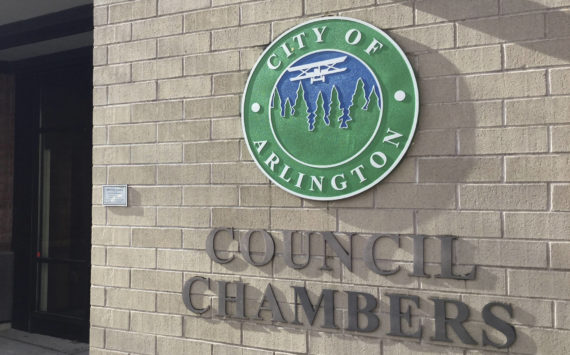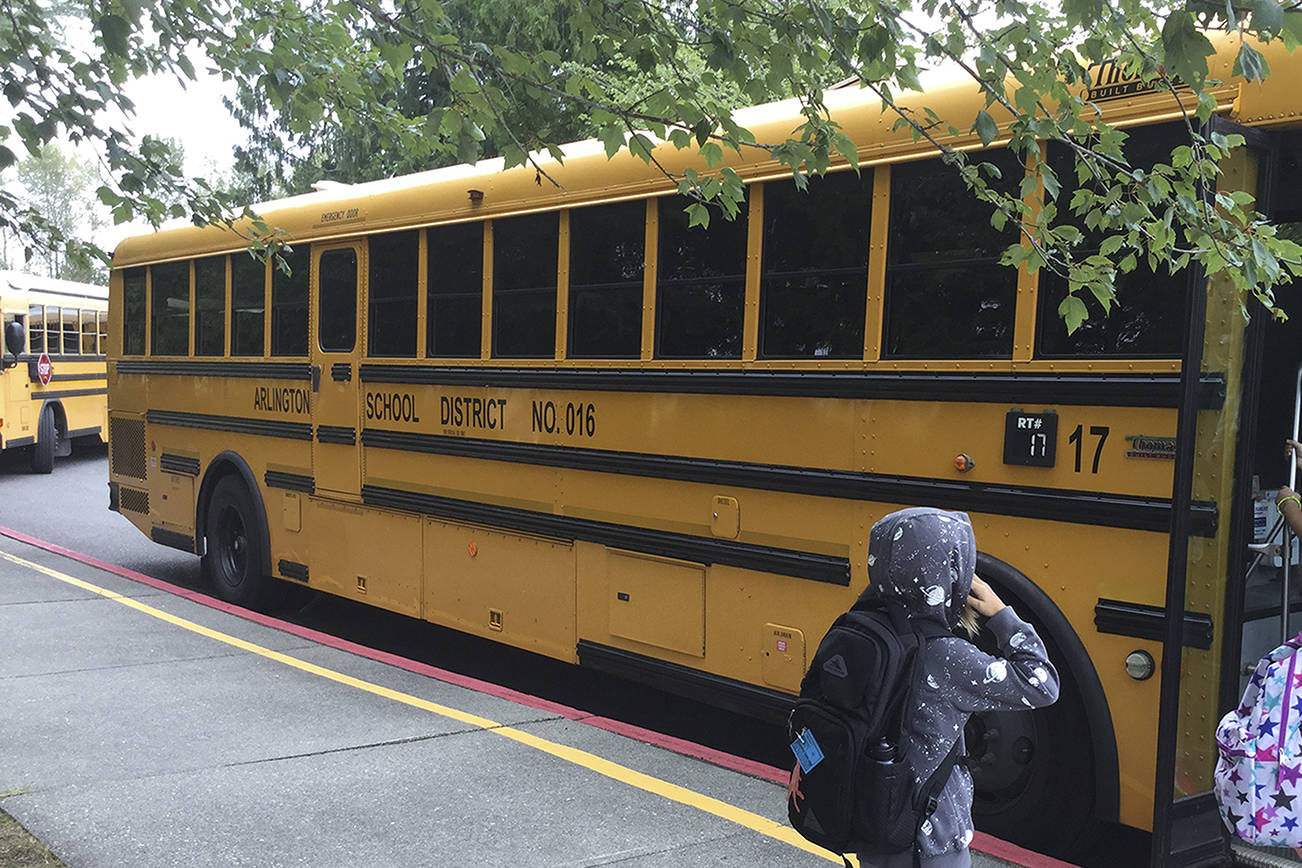ARLINGTON – For as long as there have been chalkboards, sidewalks and school playgrounds, chalk has been used for everything from drawing hopscotch courts to bringing out the Picasso in imaginative kids.
Pioneer Elementary School this year has found a new use for chalk. They have created a chalk wall in the school’s front entrance scribbled with positive messages written by Pioneer kids themselves that greet students, parents and staff.
Principal Kerri Helgeson asked students, “How will you spread kindness?” Answers ranged from being nice to people to stop bullying. “We really want the students to stop and read it when they enter so they can think about how to spread kindness during the day,” Helgeson said.
As most parents can attest, writing on a wall at home is a no-no. But Helgeson came up with the idea after seeing how other schools were motivating students to spread kindness.
The chalk wall was unveiled at the start of the school year. On the first day, it was the teachers who posted their answers to the question: “What is your hope for the new school year?”
Then, it was the students’ turn.
Surprisingly, Helgeson said there was a lot of crossover in what the teachers and students said. The messages were less focused on scholastic achievement and more on basic social skills.
“People walk by the chalk wall and read it,” Helgeson said. “Kids smile. Parents, too, pay a lot of attention when they walk in.”
The students have really taken to the chalk wall and made it their own.
Olivia Morales, a creative fourth-grader who likes to draw, has shared uplifting messages in chalk.
“That’s what the chalk wall’s for – to write good messages for others to see,” she said. She left a message about persevering through tough times and remembering those you love after her dog died.
Second-grader Finley Anderson has become a daily contributor to the chalk wall. When he wrote messages about hope and how he spreads kindness, he took what he learned from “Fill Your Bucket.” The lessons teach children to fill their bucket by offering words of encouragement to others, being kind, saying hello to someone at school, and including someone who is left out of an activity.
“When you’re kind to others, you fill the bucket,” Finley said. “We all have an invisible bucket. You can’t see it, but it’s there. Be a bucket filler, not a bucket dipper.”
A bucket dipper is someone who bullies, picks on someone else, judges others, or steals from someone, for example.
Addison Knee, a fellow second-grader, said her last messages in chalk were to “stop bullying and spread kindness.”
Addison said: “I like that we have the chalk wall to let people share their thoughts, kindness – make them smile… at least we hope they will.”
Like Finley, she’s a bucket filler, too. For this month’s message, “What are you thankful for?” she mentioned her family and someone extra-special, her grandfather, a military veteran who passed away from ALS, a progressive, neurodegenerative disease.
During October, Arlington schools and many statewide celebrated Disability History Month. Arlington schools conducted educational activities that provided instruction, awareness and understanding of disability history and people with disabilities, said Dave McKellar, director of special education for Arlington schools.
Pioneer incorporated the chalk wall questions into the theme, and other schools hosted events to encourage a better understanding of people affected by a disability, as well as to raise awareness to the benefits of integrating disabled people into every aspect of life, especially in school, McKeller said.
Another message at the center of the chalk wall is the importance of helping others less fortunate.
Pioneer Elementary proclaimed the month of October “Socktober.” Students are competing to see which grade kindergarten through fifth can collect the most socks to donate to shelters. With one week to go, students have collected more than 4,000 pairs.
